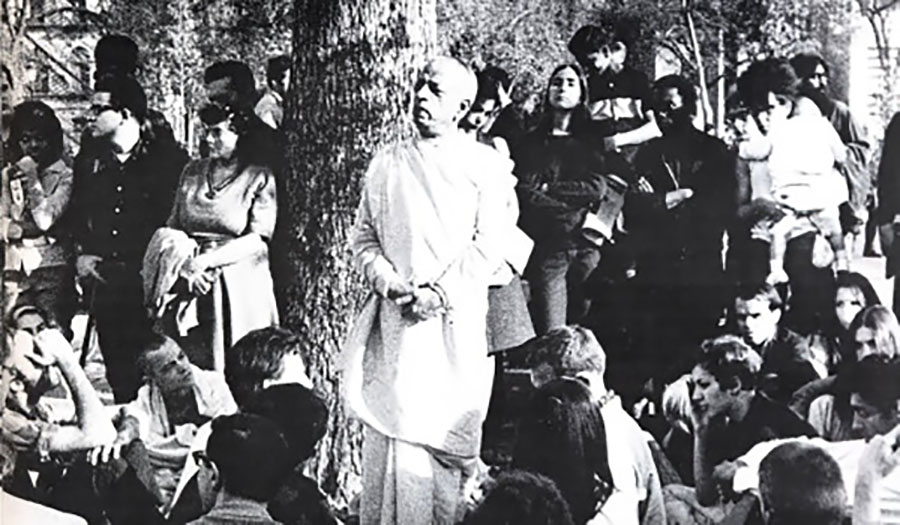ISKCON 50 Meditations: December 30, 2016
By Satsvarupa dasa Goswami | Dec 30, 2016

Let’s Just Love Him
Right from the beginning of his preaching in the West, Srila Prabhupada offered the world a brilliant summary of the methods of bhakti-yoga, revealing the universal applicability of this simple but all-inclusive form of yoga. He showed how even those who are entangled in the complexity and chaos of modern materialistic life could begin an uncomplicated practice which purifies the mind and puts one in touch with the Supreme consciousness.
This, perhaps, was Srila Prabhupada’s greatest contribution to our age. Srila Prabhupada was an acknowledged master scholar of India’s ancient spiritual culture and of its linguistic foundation, the Sanskrit language. But he was not merely a textual scholar or a philosopher or theologian engaged in the manufacture of interesting philosophical or theological notions. He was a true spiritual genius who succeeded in bringing to life the efforts of India’s universal spiritual wisdom in a form which is easy for twenty-first century man to understand and practice.
The transforming quality of Prabhupada was that he could make people devotees of Krishna. He himself used to say, “So many editions of Bhagavad-gita have been translated into English, but as a result, not one person has become a devotee of Krishna. Now that we have presented it as it is, so many people are taking to Krishna consciousness.”
Even the fact that so many schisms and splinter movements of ISKCON flourish to some degree is a credit to Prabhupada. They are flourishing on the strength of his having made something apparently foreign available to Westerners.
For myself, I like to think of Prabhupada in a simple way, as he first manifested to us—as Swamiji at 26 Second Avenue. I don’t feel the need to prove to myself that he was great. I just want to love him as the Vrajavasis love Krishna. The Vrajavasis don’t have to prove that Krishna is God or that nobody else but Krishna is God. They just love Him and want to be with Him forever. If Krishna leaves them even for a moment, they simply think of Him and cry.
That’s one way to think, but we also need the Ramanujas and Madhvas and their learned followers to prove Prabhupada’s exalted position to the world. And who’s to tell us exactly how to develop our own relationship with Prabhupada? Of course we have to approach him in the standard way through inquiry and service, but there’s also room for different attitudes, even within ourselves. Sometimes I like to take up that role where I prove Prabhupada’s uniqueness. Other times, like during this 50th ISKCON year when we are expected to beat a particular drum of his glories, for example, I think, “What are we trying to prove? Let’s just love him and accept him as our guide.”















